
Mr. Wang Dianjun, a famous contemporary educationalist, and TUHS principal, explained in depth TUHS’s international educational philosophy, development status, and future strategies at the meeting. At the same time, he touched upon TUHS’s views of and solutions to many major issues and challenges facing international education. Principals of Tsinghua International School (THIS), Tsinghua University High School International-Chaoyang (THIS), Kaiwen Academy (KWA), and Tsinglan School were invited to share their high-quality educational practices as integrated TUHS international schools. They talked about concepts for running a school, curriculum set up, and educational and teaching models of their respective schools. Principal Shi Ping presided over the meeting.
Experts from the educational circle in Beijing and parents attend the seminar.
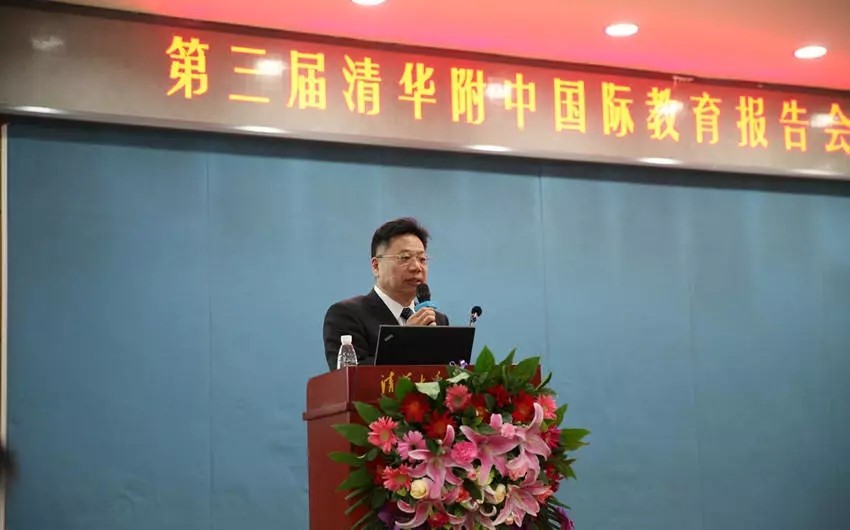
Principal Shi Ping presides over the meeting.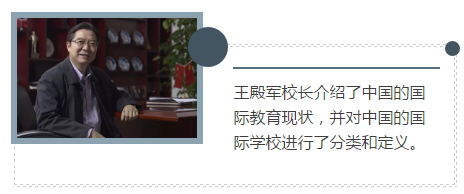
Principal Wang Dianjun speaks about China’s current international education status and classifies and defines China’s international schools.
He pointed out that TUHS-run international schools are neither international classes of a public school nor schools established as a result of TUHS’s cooperation with a foreign school or institution. Instead, they are bilingual international schools that TUHS established independently to foster talented people with international perspectives and Chinese roots.
Principal Wang noted that international education does not refer to education of a certain country, but to education of international quality. He explained the reasons behind the increasing popularity of international schools, the pressure facing international education, and countermeasures to deal with the pressure—parents who do not follow a trend blindly and schools that guarantee teaching quality.
Integrated TUHS international schools
Next, Principal Wang introduced the Daoxianghu International School that TUHS is preparing to build and the four existing international schools: Tsinghua International School (THIS), Tsinghua University High School International-Chaoyang (THSI), Beijing Kaiwen Academy (KWA), and Tsinglan School He invited the principals of the four schools to share their exploration and practical experience in the field of international education.
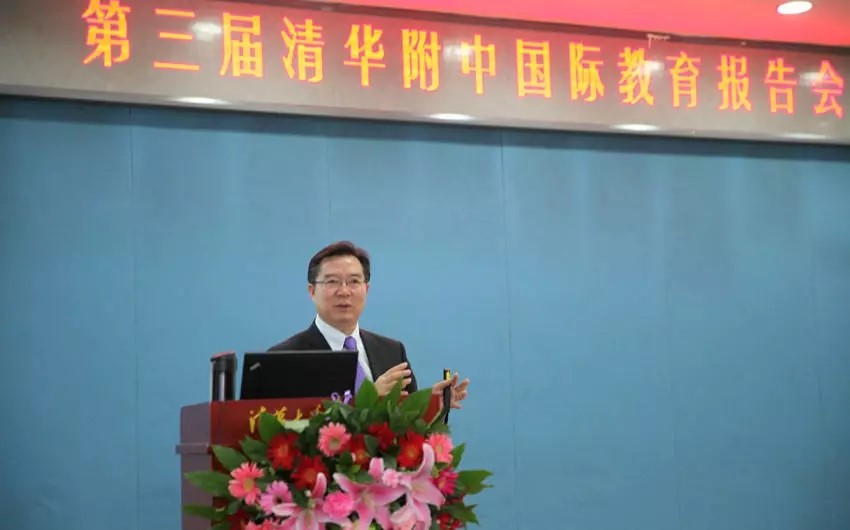
Principal Wang Dianjun speaks at the seminar.
First, THIS Principals Ms. Li Wenping and Ms. Maxine Klimasara described THIS’s attempts to develop their students’ skills for the 21st century. They vividly described THIS’s educational and teaching practices from various aspects such as school philosophy, curriculum setup, activities, and educational achievements. The friendly, loving, and helpful THIS students, with their profound Chinese-English foundation, eagerness to learn, strong academic ability, all-around development, and team spirit, have won the favor of world-renowned universities and left a deep impression on the guests present.
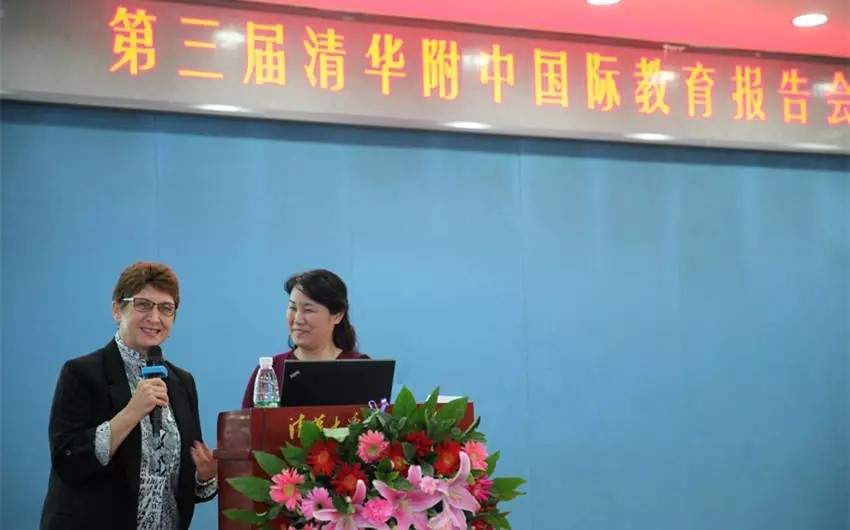
Principals Li Wenping (right) and Maxine Klimasara (left) speak at the seminar.
Tsinghua University High School International-Chaoyang (THSI), located in the South Park of the Olympic Park, is devoted to the healthy physical, spiritual, and emotional growth of its students. With detailed data, John Christopher Hansen, an advisor to the THSI Development Center, and THSI Executive Principal Zhang Wenying displayed THSI’s endowed geographic advantages and full use of its sports venues. Accordingly, the school has vigorously developed sports and personalized education for students.
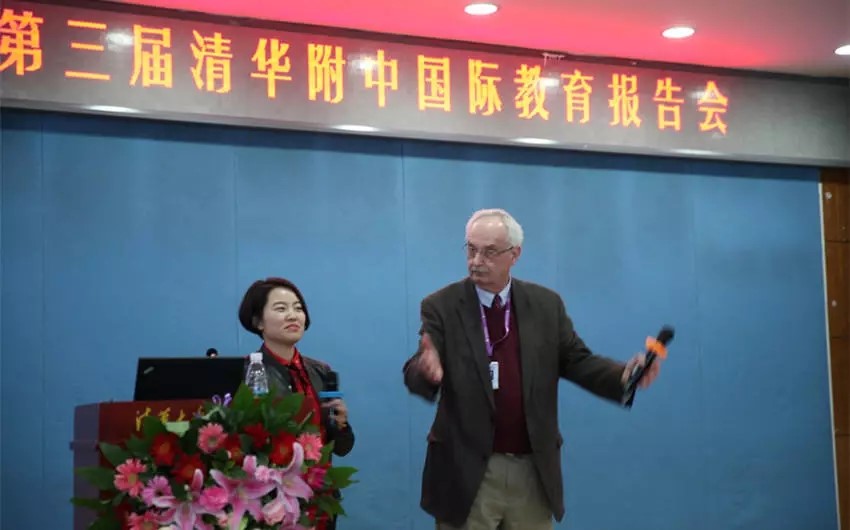
John Christopher Hansen (right) and Principal Zhang Wenying (left) speak at the seminar.
KWA Academic Principal Wang Shi and Deputy Academic Principal Donald Miller talked about KWA’s three pillars and introduced the school’s unique curriculum system from three aspects of teachers, curriculum, and teaching methods.
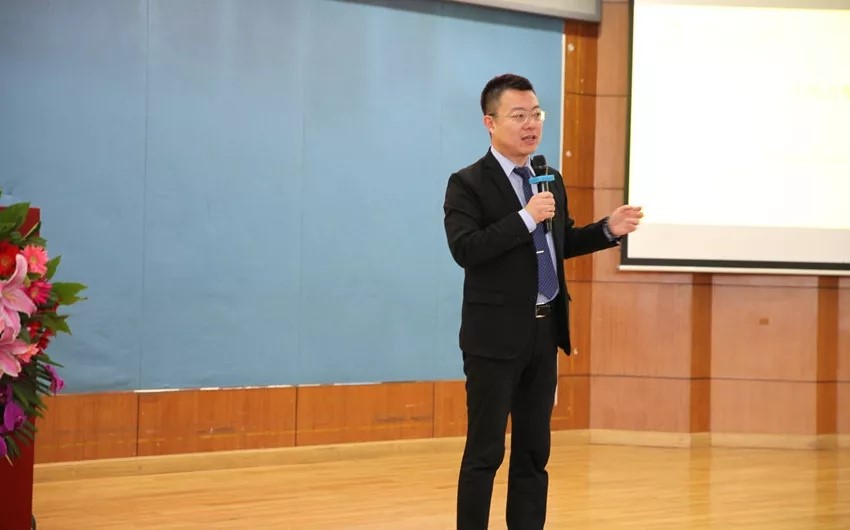
Principal Wang Shi speaks at the seminar.
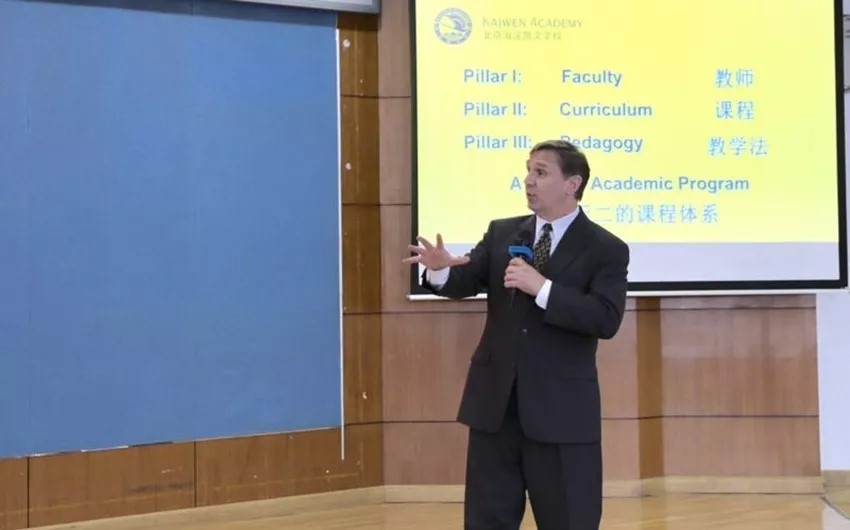
Donald Miller speaks at the seminar.
Larry James Tash, academic principal of Tsinglan School, described the qualities that 21st-century talented people must have—communicative, cooperative, ability to think critically, innovative, etc. In view of this, Tsinglan School is committed to providing students with good teaching practices and interdisciplinary project-based teaching, to fully inspire its students to think and practice.
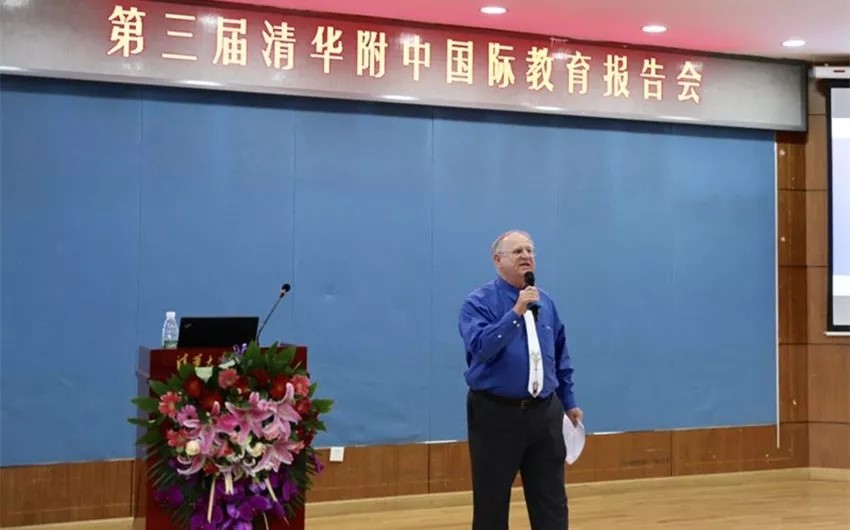
Larry James Tash speaks at the seminar.
After the meeting, the participants and the heads of the international schools had an in-depth discussion of educational practices of these international schools during a one-on-one interaction session between them.
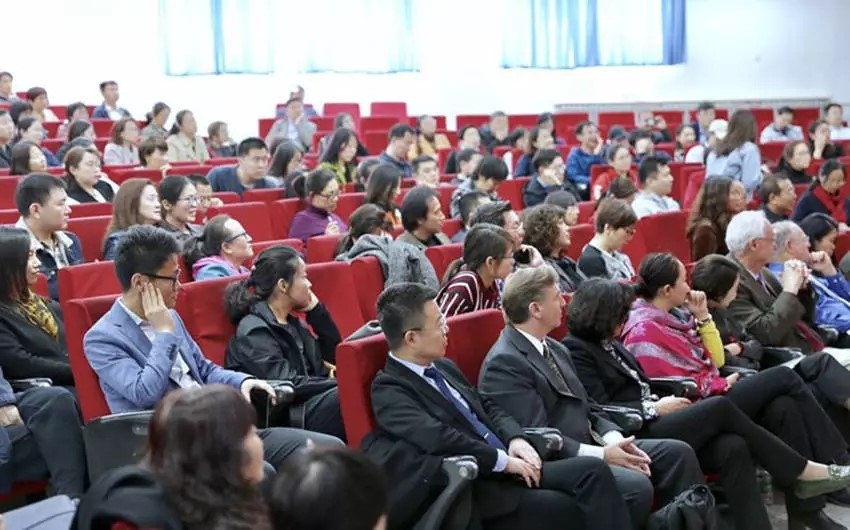
Guests listen attentively at the seminar.